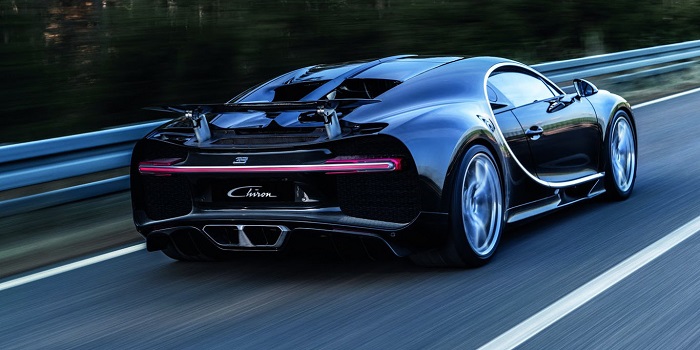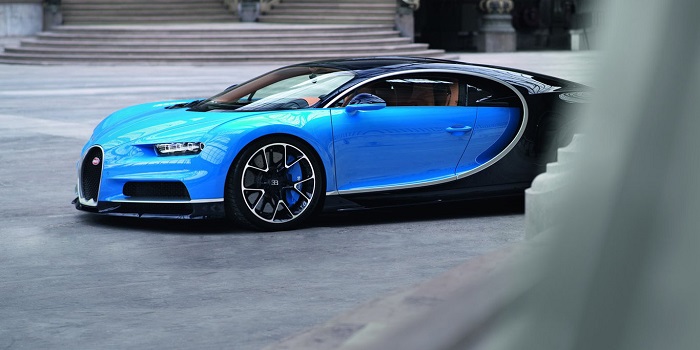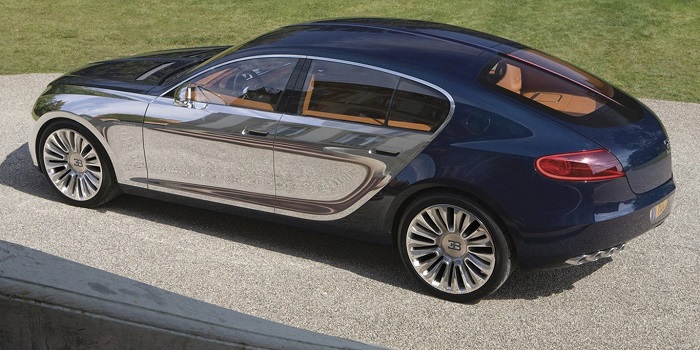Bugatti Chiron successor to be electrified
The successor to the Bugatti Chiron – which is still almost a decade away – will use electrification to make one of the world’s fastest cars even faster.
CEO Wolfgang Dürheimer said electrification is inevitable, indicating that the next-generation hypercar will almost certainly be a hybrid of sorts.

"Electrification will happen,” he said, "the next car is a long way from being developed, but the way battery and electric motor technology is moving on – as well as regulations – it seems certain that the next car will be electrified in some way.”
"It will still be too soon for a full electric car, I think – but electrification will happen.”

The Bugatti Chiron (pictured) is powered by an 8.0-litre quad-turbo W16 engine – which first saw life in the iconic Veyron – developing a massive 1103kW of power (1500PS) and 1600Nm of torque.
Drive is sent to all four wheels via a seven-speed dual-clutch transmission, allowing the Chiron to claim a 0-100km/h time of "less than” 2.5 seconds, on its way to an electronically-limited top speed of 420km/h.
The instantaneous torque of electric assistance could see Bugatti’s next hypercar achieve insane acceleration times – potentially around the 2.0-second 0-100km/h mark – while also allowing the company to significantly reduce fuel use and emissions.
It’s not the first time there’s been talks of a hybrid Bugatti, though. Prior to the Chiron’s unveiling, there were rumours that the Veyron successor would employ a W16 engine aided by a hybrid system.

More recently, late last year Dürheimer told Autocar that a hybrid version of the Chiron was "something [Bugatti] have under consideration now” but it appears that is no longer the case, since the company’s boss says there "will probably never be a car with the pure mechanical capabilities of the Chiron”.
"The fact that it may never be beaten, in pure mechanical terms, makes it incredibly desirable,” he told Autocar this week – addressing why he is considering purchasing one of the 2.4 million euro ($3.52 million) hypercars, of which 280 of the planned 500 units have been sold.

Meanwhile, rumours of a second model in Bugatti’s line-up have sparked again, after Dürheimer told the British publication that such a vehicle could delay the production of the Chiron’s successor.
"We are looking at what customers want if we do something different, and we have some ideas,” he said.
"But we are not under pressure to decide – production of the Chiron is expected to last for around eight years. We are at the predevelopment phase, preparing technically and asking clients what they expect.”
Source: caradvice.com

"Electrification will happen,” he said, "the next car is a long way from being developed, but the way battery and electric motor technology is moving on – as well as regulations – it seems certain that the next car will be electrified in some way.”
"It will still be too soon for a full electric car, I think – but electrification will happen.”

The Bugatti Chiron (pictured) is powered by an 8.0-litre quad-turbo W16 engine – which first saw life in the iconic Veyron – developing a massive 1103kW of power (1500PS) and 1600Nm of torque.
Drive is sent to all four wheels via a seven-speed dual-clutch transmission, allowing the Chiron to claim a 0-100km/h time of "less than” 2.5 seconds, on its way to an electronically-limited top speed of 420km/h.
The instantaneous torque of electric assistance could see Bugatti’s next hypercar achieve insane acceleration times – potentially around the 2.0-second 0-100km/h mark – while also allowing the company to significantly reduce fuel use and emissions.
It’s not the first time there’s been talks of a hybrid Bugatti, though. Prior to the Chiron’s unveiling, there were rumours that the Veyron successor would employ a W16 engine aided by a hybrid system.

More recently, late last year Dürheimer told Autocar that a hybrid version of the Chiron was "something [Bugatti] have under consideration now” but it appears that is no longer the case, since the company’s boss says there "will probably never be a car with the pure mechanical capabilities of the Chiron”.
"The fact that it may never be beaten, in pure mechanical terms, makes it incredibly desirable,” he told Autocar this week – addressing why he is considering purchasing one of the 2.4 million euro ($3.52 million) hypercars, of which 280 of the planned 500 units have been sold.

Meanwhile, rumours of a second model in Bugatti’s line-up have sparked again, after Dürheimer told the British publication that such a vehicle could delay the production of the Chiron’s successor.
"We are looking at what customers want if we do something different, and we have some ideas,” he said.
"But we are not under pressure to decide – production of the Chiron is expected to last for around eight years. We are at the predevelopment phase, preparing technically and asking clients what they expect.”
Source: caradvice.com
Latest News


